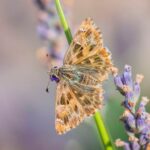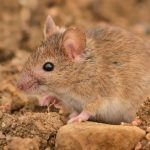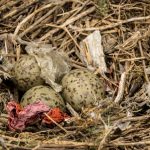Astronomers detect collision between a black hole and cosmic object
In the other news of the world, a mysterious astronomical object merged with a black hole that’s 780 million light years away. This move...
Agricultural conservation schemes not enough to protect Britain’s rarest butterflies
Conservation management around the margins of agriculture fail to protect butterfly species at greatest risk from the intensification of farming, a new study says.
The...
Humans and Neanderthals: less different than polar and brown bears
Ancient humans, Neanderthals and Denisovans were genetically closer than polar bears and brown bears, and so, like the bears, were able to easily produce...
Scientists find first evidence of microplastics passing from insects to predators in rivers
A species of river bird is swallowing hundreds of plastic fibres every day via their insect prey, research by Cardiff University and the Greenpeace...
Researchers to study ‘DNA’ of Earth’s interior
An ambitious project set-up to map conditions underneath the surface of the Earth in unprecedented detail has been launched by scientists.
Combining state-of-the-art technology with...
A game of cat and mouse: new study reveals Europe’s earliest house mouse…. followed...
Scientists have discovered that the house mouse invaded European homes 2,500 years earlier than previously thought.
Dr David Orton, from the University of York, found...
Scientists have discovered how catmint gained its ability to send felines into a state...
By unpicking its genetic makeup, researchers have discovered how catmint evolved to make nepetalactone, the molecule responsible for its effects on cats.
The research, conducted...
Winter warm spells see a two- to three- fold increase in duration and frequency...
Warm winter spells have increased in frequency and duration two- to three times over since 1878, according to scientists led by the University of...
Seabird nests are full of plastic debris researchers find
Researchers have found that plastic debris is incorporated in up to 80% of seabird nests.
For the first time, it has now been identified where...
Near-unlivable’ heat for one-third of humans within 50 years if greenhouse gas emissions are...
Areas of the planet home to one-third of humans will become as hot as the hottest parts of the Sahara within 50 years, unless...










